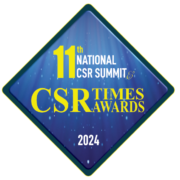ARCHIVE
WOMEN OF SCIENCE, WOMEN OF SUBSTANCE
MARIE CURIE changed the course of science 150 years ago; still women representation in STEM fields remain inadequate, reports NEETI JHA.
The scientific community has witnessed many a prominent scientist -eccentric and crazy even.But for the longest time, it was blind (very willingly) to the women who contributed no less. Marie Curie was one such woman who, albeit the Nobel Prizes that came her way, continued to face such treatment. Its 2017 ending and things have not really changed, more than a century after Marie Curie broke that glass ceiling, the number of women in STEM – science, technology, engineering and medicine – fields continues to belie the number of years that have passed. Marie Curie was born Maria Sklodowska on November 7 1867 in Warsaw, Poland. She met her scientist husband, Pierre Curie, in Paris in 1894, and they married a year later. It was around this time that she adopted the French spelling of her name – Marie.
In 1903, she shared the Nobel Prize for Physics with French physicist Henri Becquerel and her husband for their work on radioactivity. Her name was initially left off the winners’ list but Pierre insisted she be included. She thus became the first woman to win a Nobel Prize. Becquerel inspired the Curies to investigate radioactivity after its discovery in 1896. They examined a mineral called pitchblende and eventually found two radioactive elements – radium and polonium. Curie named polonium after her home country. Curie’s life was struck by tragedy in 1906 when Pierre was killed in a carriage accident. She went on to succeed him as a professor at the Sorbonne in Paris and devoted herself to continue the work they had begun together. In 1911, she was awarded the Chemistry Prize – becoming the first person to win two Nobels. Due to her pioneering contributions and dedication to her work, Curie bagged several ‘first woman’ titles. She was the first to win Nobel Prize in Physics then she became the first woman to win Nobel twice in a life. Later on after her husband died, she was offered his position in the University of Paris, making her the first woman to become a professor in that institute.
Marie Curie, who was born 150 years ago, was a rare successful woman in an overwhelmingly male world of scientific research at a time when it was unheard of for women to be in positions of authority that they hadn’t been born into. Her 150th birth anniversary is as good a reason as any to look at how far women in science have come since. Despite the best efforts of Curie herself and thousands upon thousands of women who have tried to follow in her footsteps, science still treats men and women differently. Shockingly no women got a Nobel this year. A total of 17 women have received Nobel Prize in the field STEM till now. Just this year Nobel Prize in Physics were given to three men which are more than the total given to women till now. Since Curie’s physics Nobel in 1903, only one other woman has ever won that prize; and since her chemistry Nobel in 1911, only three other women including her daughter have ever won. In the 117 years of its existence, 12 women have won the Nobel Prize in physiology or medicine.
The current situation in India has not improved the situation much. Of all the enrolments in the Indian Institutes of Technology (IITs), only about 10% are women. Those in PhD and post doctoral research are even fewer. A survey found that while 46% of all undergraduate students in STEM fields are women, not many continue to work in the field. A shocking 41% of women in technology quit their role after a decade, as compared to 17% of men; and 81% of women in STEM fields in India perceived a gender bias in performance evaluation.
It is not just this sort of blatant misogyny but having been slotted into the arts, social work, and teaching bracket that is seen as appropriate for the gentler sex, it isn’t easy for women to break free. The deep-seated bias that women simply cannot “do” science keeps them from even breaking into the networks that are so essential for rising in research fields.
The immense pressure to conform to these traditional gender roles; and put the demands of family before their careers, are some of the main reasons for women opting out of high pressure careers such as STEM. Earlier this year, a promising PhD scholar from IIT Delhi committed suicide, allegedly under pressure from her husband and in-laws for dowry and to give up her research dreams. Even if women make up to the field’s women still aren’t treated equally. Only one in five full science professors are female. Maledominated panels are so common at academic conferences and public outreach events that the internet has nicknamed them “manels” and begun shaming them on social media. Papers written by female scientists are cited less frequently and professional recommendation letters are fullof gender-biased language. Not all of the ways women are pushed out of the sciences are casually insidious, either. Female medical residents and researchers in the field regularly face sexual harassment and assault.
And when women speak up about how they’re treated, men tend to reject the evidence. It’s why on the 150th anniversary of Marie Curie’s birth, we still have to talk about how no one knows about her modern equivalent. It is the job of universities and governments, and society at large to ensure that hiring practices in organisations are free from the insidious sexism that keeps women from achieving their full potential.



































